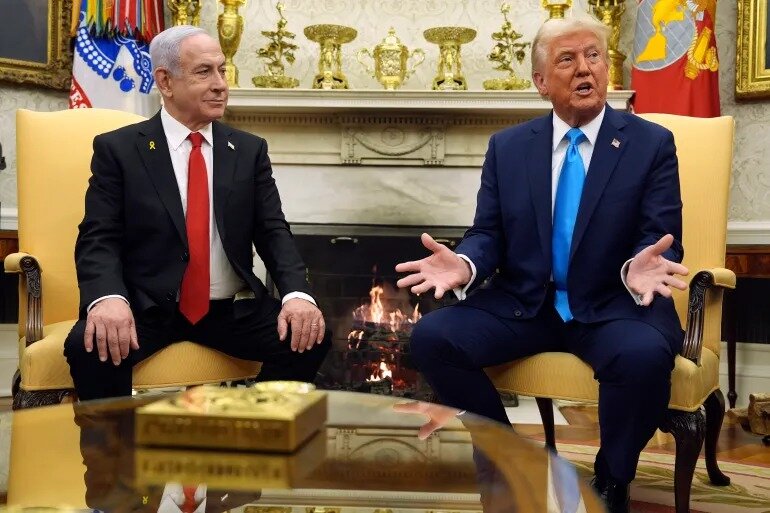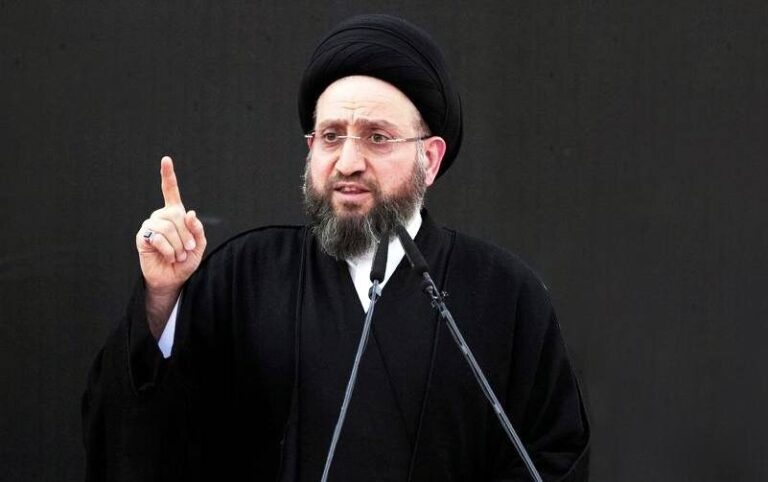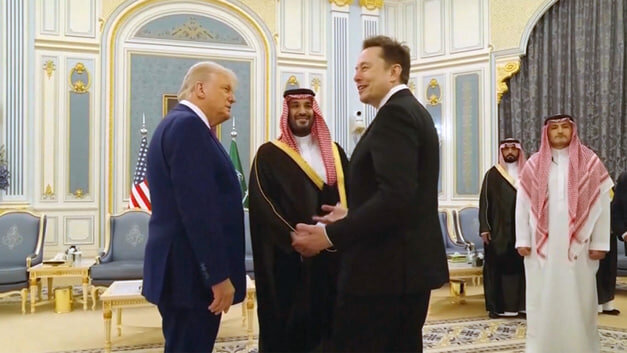Trump’s Ambitions Spark Fears of a Third Intifada Amid Gaza Tensions
In a controversial announcement, President Donald Trump has presented a shocking plan for the Gaza Strip, raising concerns about the potential for ethnic cleansing in the Palestinian territory. This proposal, made during a joint press conference with Israeli Prime Minister Benjamin Netanyahu, suggests that the United States may assume control of Gaza, echoing the mass dispossession seen during the 1948 Nakba.
During the press conference held at the White House, Trump declared, “The US will take over the Gaza Strip and we will do a job with it too.” He elaborated on his vision, stating, “We’ll own it and be responsible for dismantling all of the dangerous unexploded bombs and other weapons on the site, level the site and get rid of the destroyed buildings.” This statement has ignited widespread outrage and fear regarding the implications for the Palestinian population.
Trump’s proposal includes the following key points:
- Seizure of Control: Trump has advocated for the US to seize control of Gaza, which could lead to the permanent displacement of the Palestinian population.
- Palestinian Relocation: He has suggested that Palestinians should relocate to areas provided by neighboring nations, particularly Egypt and Jordan, both of which have rejected these proposals.
- Military Deployment: President Trump hinted at the possibility of deploying US troops to Gaza, stating, “If it’s necessary, we’ll do that.”
Since taking office, Trump has consistently encouraged Egypt and Jordan to accept Palestinian refugees, despite their firm refusals. His recent actions come in the wake of a ceasefire brokered by the US, Qatar, and Egypt, which began on January 19, aiming to halt the ongoing conflict between Israel and Hamas. This conflict has resulted in the deaths of approximately 62,000 Palestinians and left much of Gaza devastated.
The ceasefire is designed to facilitate the withdrawal of Israeli forces from Gaza and secure the release of captives held by Hamas. This military escalation commenced on October 7, 2023, following a surprise attack by Hamas, known as the Al-Aqsa Storm, which tragically claimed over 1,100 lives and resulted in numerous captives.
Prime Minister Netanyahu has publicly stated his commitment to continue military operations until Hamas is dismantled and all captives are freed. However, his decision to agree to a ceasefire was influenced by his inability to achieve military objectives.
Since the ceasefire’s initiation, Hamas has released 18 captives in exchange for hundreds of Palestinians held in Israeli prisons, and previously, over 100 captives were freed during a week-long truce in November 2023.
Trump’s recent statements about relocating Palestinians from Gaza and the US taking ownership of the territory suggest a blatant disregard for the existing ceasefire agreements. This aligns with Israel’s ongoing strategy to forcibly displace Palestinians, as evidenced by a wartime proposal drafted by Israel’s Intelligence Ministry shortly after the conflict began. This proposal included relocating Gaza’s 2.3 million residents to Egypt’s Sinai Peninsula, creating tent cities, and eventually establishing permanent housing and humanitarian corridors.
Despite Netanyahu’s office downplaying the significance of this document, reports indicate that he sought to persuade European leaders to pressure Egypt into accepting Gaza refugees. Both Trump and Israel’s strategies could be seen as reminiscent of a second Nakba, a term denoting catastrophe and referring to the mass expulsion of Palestinians during the establishment of Israel in 1948.
The historical context surrounding these proposals highlights the ongoing struggle for Palestinian rights and self-determination. The Al-Aqsa Storm has notably changed perceptions of Israel’s military strength, challenging the long-held belief in its invincibility.
Current strategies pursued by Trump and Netanyahu may lead to significant unrest, potentially igniting a third Intifada. Resistance groups are likely to react vehemently to any attempts to deploy American soldiers in Gaza, viewing it as an occupation.
Some analysts argue that Trump’s suggestion to “take over” Gaza is a spur-of-the-moment idea. However, it reflects broader imperialistic ambitions that underpin American foreign policy in the region. The potential ramifications of this proposal warrant serious consideration and raise profound ethical questions regarding the rights and lives of the Palestinian people.
As this situation unfolds, the international community watches closely, concerned about the implications for peace and stability in the region. The actions and decisions made by both the US and Israeli leadership will undoubtedly play a pivotal role in shaping the future of Gaza and its inhabitants.






